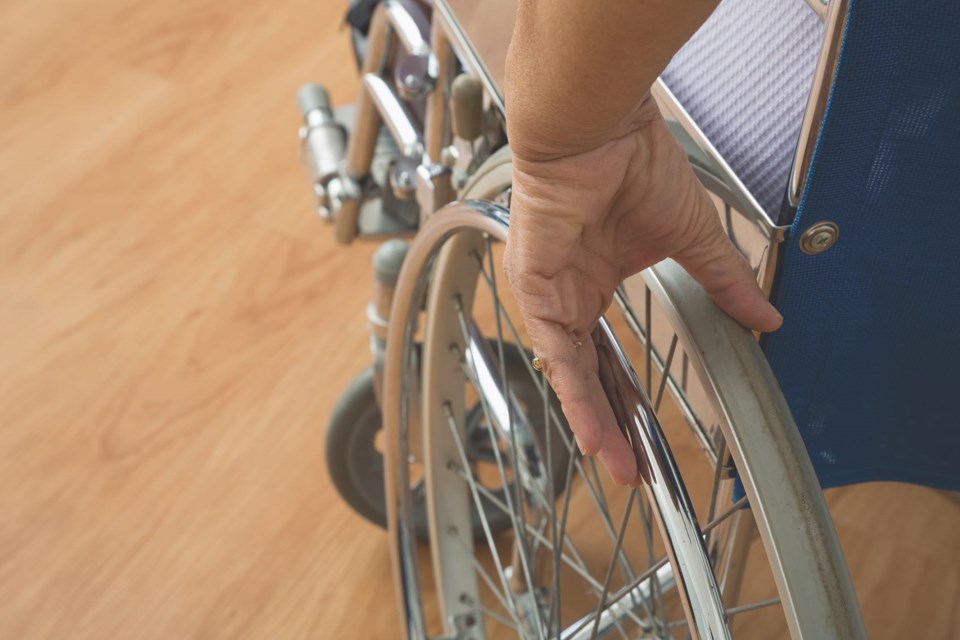The following column was submitted to the Tri-City News from Bonita Zarrillo, MP for Port Moody-Coquitlam and NDP critic for disability inclusion.
With the rising cost of food and the skyrocketing costs of housing and rent, too many persons with disabilities are falling further and further behind.
COVID-19 amplified existing inequalities when persons with disabilities were disproportionately affected by loss of employment, social isolation and lack of access to transit and recreation.
For people with compromised immunity, just going out for necessities is still a risk. These barriers are even higher when poverty is also a factor.
Poverty is a reality for almost one million persons with disabilities. And poverty is not an accident. It is legislated.
Today in Canada, there is no national framework to protect the basic needs of people living in poverty.
We have an official poverty line that spells out the amount needed to cover the basic needs of everyday life but there is no law to apply it.
That needs to change, and that is where Bill C-22 comes in: The Canada Disability Benefit Act. Currently, the House of Commons is considering this Bill that "aspires" to lift persons with disabilities out of poverty but has no details on how it will do that.
It is missing essential details.
Done right, Bill C-22 has the potential to uphold the human rights and dignity of persons with disabilities and truly ensure they do not live in poverty.
Its key to success will be that the amount of the benefit must be legislated and adequate. It must be enough to meet the basic needs of persons with disabilities.
In Canada, that is called The Official Poverty Line, or Market Basket Measure. It is a marker of the minimum income that people need to survive and must be the minimum amount of the new Canada Disability Benefit.
Yet, for the disability community, that measure is flawed since it does not take into consideration the additional costs of a disability. That is why any Canada Disability Benefit must be on top of any provincial or territorial benefits, with no clawbacks.
The longer the government waits to enact this promised Canada Disability Benefit, the more dire the situation is becoming for persons with disabilities that live in poverty.
Nowhere is this more amplified than in medical assistance in dying.
There can be no legitimate conversation on human rights, dignity, autonomy, or individual choice when people's most basic needs, such as housing, food, clothing, and medication, are not met due to poverty.
Governments say that everyone has equal and inherent rights. But we only need to look at the government's failure to deliver emergency supports to persons with disabilities during the pandemic to remind ourselves they are continually left behind.
The continuing exclusion of persons with disabilities in government decision-making and in budgetary commitments, and the insurmountable barriers to full and equal participation in civic life, has led some of the most vulnerable in our society to consider ending their lives, not because they choose to die, but because they see no way to live.
Persons with disabilities have had to do much too much heavy lifting to fight for their basic human rights and equity.
The discrimination that persons with disabilities experience in this country is a moral, systemic and systematic failure that perpetuates in communities across this country, and legislation rarely considers the impacts of them in this ablest society we live in.
The stakes are high when dealing with lives, and that is why Canadians need to have the assurance that this new benefit will be adequate, will reach the people it needs to reach, and will come soon.
Canada aspires to be a world leader in the eradication of poverty, and here is our chance to make that a reality for persons with disabilities by passing an amended Bill C-22 that enshrines "adequacy" in its principles.
That is my goal for the people of Port Moody, Coquitlam, Anmore and Belcarra, and for all Canadians.
This is an historic opportunity to enact the first law in Canada that legislates people OUT of poverty and that is a goal worth fighting for.



